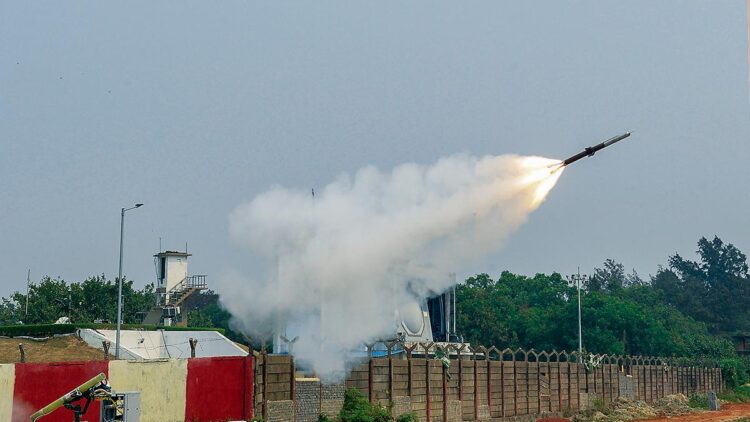Amid the growing demand for shoulder-fired air defence missiles, the Defence Research and Development Organisation (DRDO) is preparing to carry out trials of its indigenously developed shoulder-fired air defence missiles before handing them over to the Indian Army for user trials.
The DRDO has been developing Very Short Range Air Defence (VSHORAD) missiles to meet the Indian Army and Air Force’s needs for countering aerial threats such as fast-moving drones, fighter aircraft, and helicopters in border areas. Defence officials have indicated that high-altitude trials of the Indigenous tripod-fired short-range air defence missile are planned in mountainous regions like Ladakh or Sikkim.
Following the successful completion of these trials, the missile system will be transferred to the Indian Army for further trials and assessments. The missile system has demonstrated the ability to lock on and neutralize both long-range and short-range targets. Officials have confirmed that any issues with short-range targeting have been resolved, allowing the system to move forward smoothly.
The Indian Army has been actively addressing the shortage of various types of very short-range air defence missiles in its inventory. Currently, two major cases worth Rs 6,800 crore are underway for the indigenous development of VSHORAD systems to bolster defence capabilities against aerial threats from Pakistan and China.
The existing VSHORAD missiles in the Indian Army and Air Force’s inventory are equipped with infrared (IR) homing guidance systems. The Igla 1M VSHORAD missile system, which was inducted in 1989, was scheduled for de-induction in 2013, highlighting the need for updated and effective air defence solutions.

















Comments